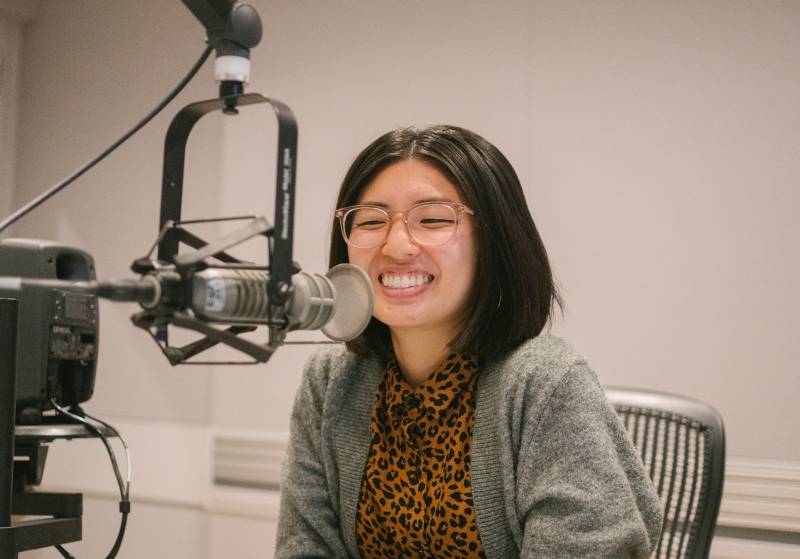How would you describe the Fairfield and Suisun area?
I feel like it has a lot of the same qualities of other parts of the Bay Area. It is incredibly diverse, and I think like a lot of people who grow up in the Bay Area, you see yourself reflected in some way in the community you lived in. And that was very much my experience growing up.
I’m Filipino American, and there was a Filipino grocery store in the town I grew up in. My neighbors were Filipino, Middle Eastern, Black, Latino. I grew up in an incredibly diverse community, you know. Our valedictorian and then in high school was a Filipino American girl. [It] just has like that quality, I feel like, of the Bay Area — of just that diversity, and seeing yourself reflected in certain corners of it.
I do want to talk a little bit about how you became a journalist. Do you know when you first realized that this is the kind of work you want to do?
I wanted to be a journalist since I was in middle school, actually. I was just interested in writing, and in high school, I was obsessed with the news. And then when I got to college at San Francisco State, I took this class with Venise Wagner. It was a “Social Impact of Journalism” class. And it went into the different kinds of media; the difference between commercial and public media.
And I just fell in love with the mission of public media in that class. And from there I was like…I want to work at KQED. I was, I think, a sophomore in college at the time, and I was like, “I’m going to get there eventually, and that’s where I want to work.”
How did you actually get to KQED?
So it took me a while. I had applied for a bunch of internships while I was a student at San Francisco State…but I had nothing really under my belt, except for little audio stories that I would try and make by myself with, like, Garage Band, and my iPhone as a recorder.
It wasn’t until San Francisco State opened up this internship — which is known as the Raul Ramirez Diversity [in Journalism] Fund internship. It’s specifically for San Francisco State students, with the idea of really uplifting people from backgrounds that aren’t often represented in journalism…funded by this former journalist named Raul Ramirez, who was a queer, Cuban immigrant and longtime journalist in the Bay Area — who left this pot of money because he had the foresight to think about, you know, the fact that our industry lacks representation.
Having spent years as a journalist, and obviously we’ve done hundreds of stories on The Bay. But what kinds of stories are you most attached to and are you most passionate about?
I love stories that I think challenge what we believe about the world. I think examples that we’ve done on The Bay are the episode we did with KQED health reporter April Dembosky about the Tuskegee Syphilis Experiment, and just the way that a lot of politicians and health officials and people in power keep conjuring that experiment up to explain why many Black Americans are not getting vaccinated during the COVID-19 pandemic…but that there’s actually something deeper going on there.
I love stories like that. I love stories where we can take people to parts of the Bay Area that they might not always be familiar with, or places in the Bay Area that just don’t get coverage because of the decline in local media.
In many ways, being behind the mic comes with a lot of power, a lot of responsibility, right? Because you are, you know, articulating these stories to a bunch of people out there who are listening. And I know you don’t take that lightly, but what does that mean to you to be the voice of a show like The Bay?
It is a little scary, but it’s also a huge honor to be in a position where the listeners are really trusting me to take them through some of the biggest stories of our region right now. And yeah, I don’t take that lightly at all.
When I just think about what I want listeners to hear when they are listening to me as a host, I want them to feel like I’m the friend that they sent out to go talk to people who are way smarter than me to help them understand this intense, but also really amazing place that we live in, and help them distill that. That’s what I’m hoping that they hear when they listen to me.

